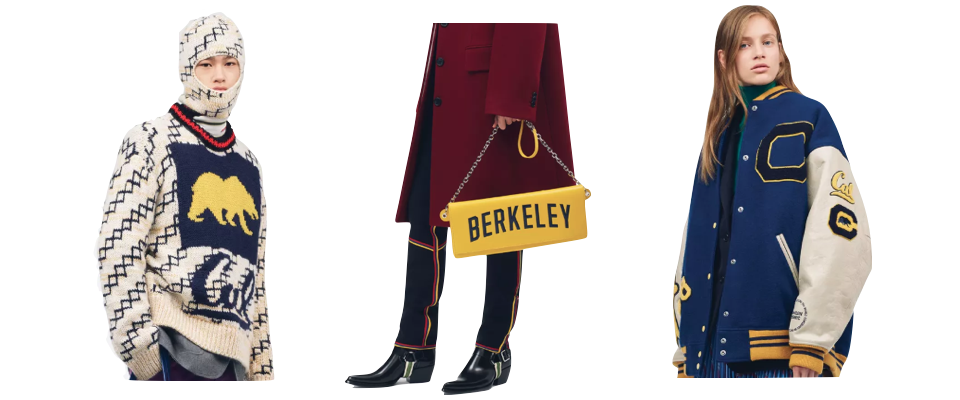Freaky Fires
While it’s not news that the golden state has taken on a crackling red hue from recent wildfires, reports of the fires’ behaviors are blazingly bizarre.
It’s been commonly observed by firefighters that fires slow down at night, according to Scott L. Stephens, UC Berkeley professor of fire science. But a number of recent fires have said “to hell with the slow burn!” and begun spreading quickly even when the sun goes down.
“What we thought was normal or average isn’t normal anymore,” Chris Anthony told the New York Times.
“Many times now in the evening fires are burning at night almost as active as they are in the day,” Professor Stephens told the New York Times. “Things are happening here in California that 10 years ago I never heard about.”
In mountainous terrain, fire usually runs uphill faster because flames and smoke rise, pre-heating the fuels above. But lately, fires have been going downhill very quickly, said Chris Anthony, a division chief at the California Department of Forestry and Fire Protection.
There are many theories as to why this is happening, but nothing conclusive. At present, all people can do is fight the fires and be wary if they live near open spaces.
“What we thought was normal or average isn’t normal anymore,” Anthony told the New York Times. “We have to change our thinking.”
Putting the Cal in Calvin Klein
Speaking of unexpected things one might need be wary of…
This year Calvin Klein, Cal, and Yale combined forces to create a sport-inspired fashion line. Designer Raf Simmons put Berkeley’s and Yale’s logos on a series of high fashion pieces from breast pockets to bags to blazers, and boy, are these outfits something. Combining Cal with Calvin Klein seems somewhat fitting because of the name coincidence, but whether or not the clothes fit the models is another matter entirely.
Is Cal+Calvin Klein a fashion phenomenon or faux pas?
As self-proclaimed “old man” and fashion non-expert Leland Wong of SB Nation noted in his rigorous review of these outfits, “Neither Calvin nor Klein know anything about how a jacket is supposed to fit.” Also, there was far too much “Stanford red” in the outfits’ design, which Wong at one point refers to as a “cardinal sin.”
Vogue has a 51 page slideshow of the outfits for your viewing satisfaction (or dissatisfaction, depending on taste). Is Cal+Calvin Klein a fashion phenomenon or faux pas? Judge at will.
Happiness May Be Right Outside Your Door
If all of these Cal high fashion outfits are stressing you out, don’t worry—just go outside. New research out of Berkeley shows that nature can not only help counteract such things as minor fashion stress, but can actually help reduce the symptoms of post-traumatic stress disorder (PTSD).
The key? Awe.
“It’s the active ingredient that explains why being in nature is good for us,” lead author and Cal postdoctoral researcher Craig Anderson told Berkeley News. “The more awe people felt during the white-water rafting trips, the happier and less stressed they were a week later.”
Stay tuned for an update on this story from frequent California contributor Glen Martin.
Turning the page of Trump’s “Textbook of Treason”
Speaking of things that inspire awe (and not necessarily the good kind), Trump received a backlash from both Republicans and Democrats after the Helsinki press conference on Tuesday, when he questioned Russia’s motivation for interfering with U.S. domestic affairs and endorsed Vladimir Putin’s denial of meddling in elections. Following the negative response, Trump claimed he misspoke, but for many, the damage seems irrevocably done.
Democrats need to, “Stand up for the pledge, pick up the flag, and win the next elections doing so,” says M. Steven Fish.
“This is textbook treason. This is what treason looks like,” M. Steven Fish, Berkeley professor of political science, said in an interview with Berkeley News. “The fact that it’s been so brazenly committed, and on an ongoing basis over a two-year period, is blinding. If this were a little bit less public and we dug what Trump is saying out of some secret documents we’d be exclaiming it: ‘Oh wow, this is treason!’ But this is so brazen and it’s been so obvious for so long, that we have become accustomed to just keep shaking our heads and turning away, denying that this can be happening.”
Fish also says that this is the perfect moment for Democrats to start strategizing. Republicans have long been the leaders in patriotism, and now that Trump has “flung down the flag,” he says Democratic aspirants should look to the future and seize the opportunity to swoop in and pick it up. It’s their moment.
“Democrats need to quit debating whether to stand during the Pledge of Allegiance,” Fish says. “Stand up for the pledge, pick up the flag, and win the next elections doing so.”
Are Robots in Facebook’s Future?
On a similar note of planning for the future, this week, Facebook announced multiple new hires in the field of artificial intelligence, raising the question of whether or not Facebook is toying with the idea of making their own robots. Yann LeCun, Facebook’s chief AI scientist, told AP News that Facebook is most interested in using robots to create better AI, and that “so far the best ideas have come out of robotics.”
According to Mark Zuckerberg, AI could both fight dangerous content (like fake news and extremist propaganda) and promote the content users really want.
Robotics can push progress in AI research because robotic AI systems, much like humans, deal with real-world constraints, Pieter Abbeel, told AP News. Abbeel, a Berkeley roboticist and co-founder of the robot-training company Covariant.ai, explained how subjecting robots to real-world constraints promotes innovation in machine learning. And for the researchers, the high costs associated with robotics, both in terms of time and machinery, motivate researchers to seek better, faster solutions.
“Robotics forces you into many reality checks,” Abbeel explained. “How good are these algorithms, really?”
Studying robotic AI systems can also help Facebook create better targeted marketing—Facebook’s bread and butter—says Berkeley AI professor Ken Goldberg. Because robots can test and adjust behaviors to better achieve their programmed goals, robot data can be easily adapted for advertising purposes, which can help determine what’s going to make someone click on an ad.
According to Mark Zuckerberg, AI may be the change Facebook needs to better manage its unmanageable amount of data. He claims it could both fight dangerous content (like fake news and extremist propaganda) and promote the content users really want.
Others, like Berkeley professor of computer science and engineering Stuart Russell, say they’ll believe it when they see it. Still, it’s within the realm of possibility.
“A combination of AI and crowdsourced flagging,” Russell told Scientific American, “should be able to clean up enough garbage that posting garbage becomes a futile activity.”



















